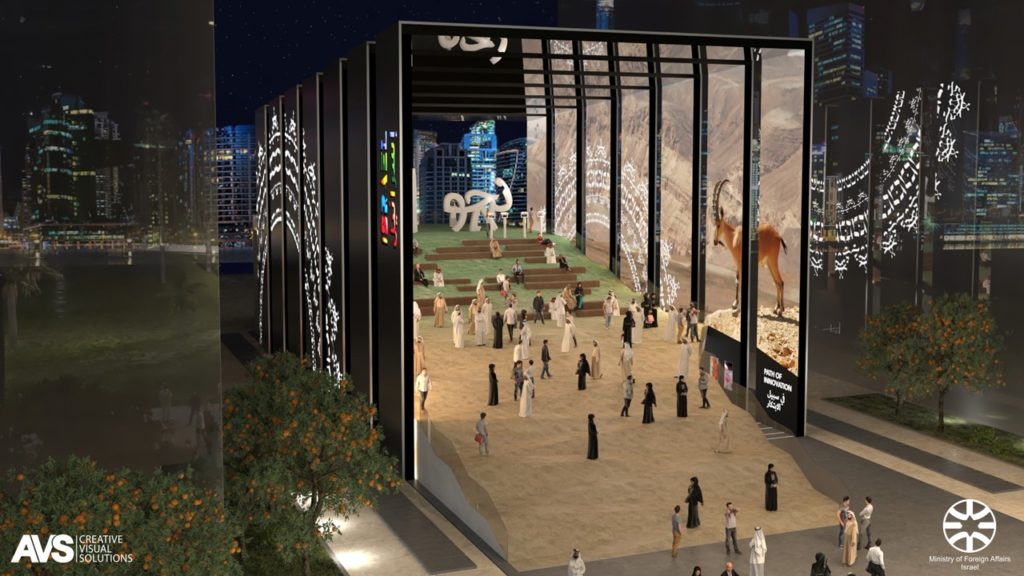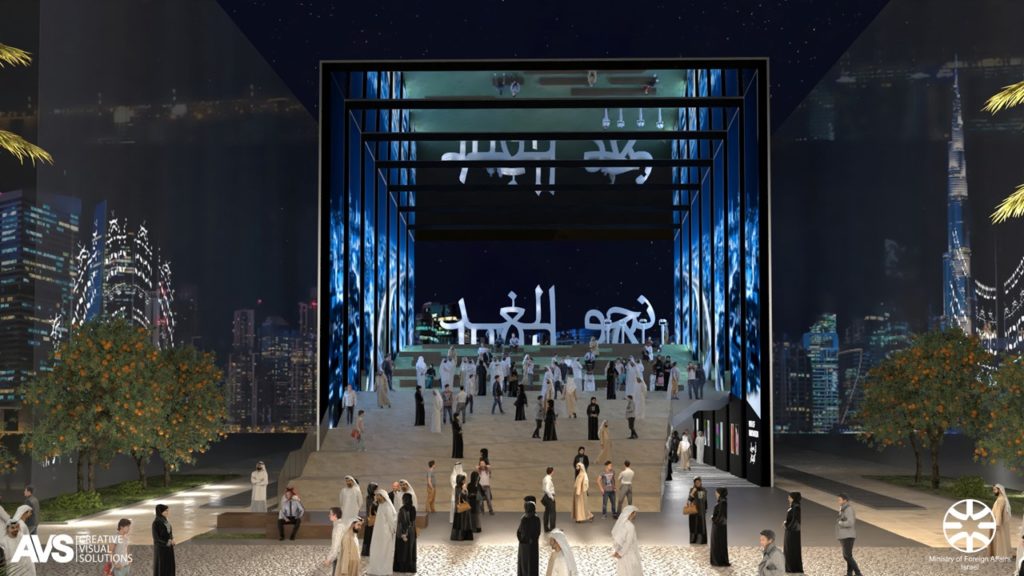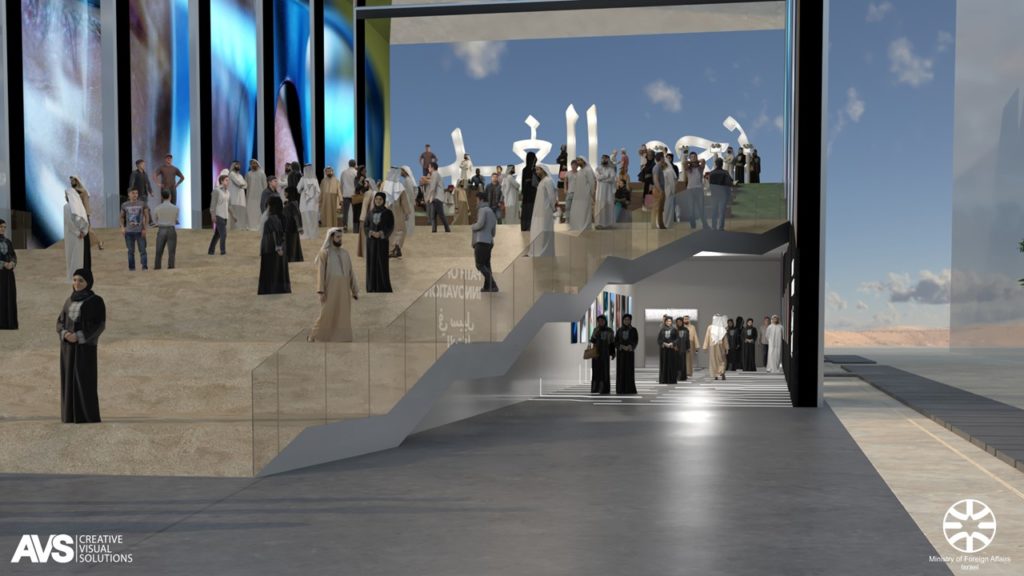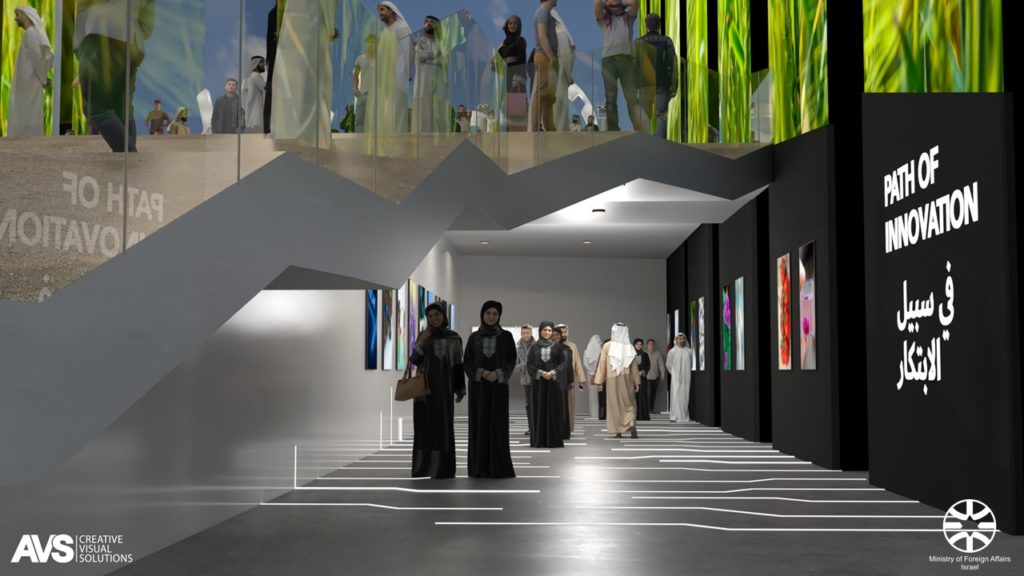Israeli Pavilion Lays Foundations For Collaboration In The Middle East
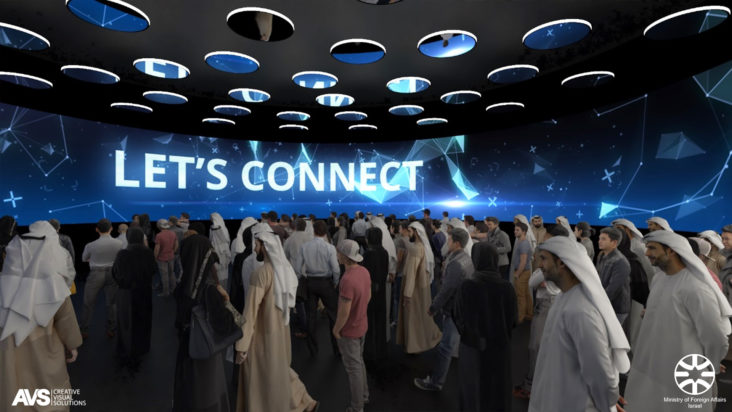
Today Israel’s Commissioner General of the EXPO 2020 Pavilion, Elazar Cohen,unveiled the trade and culture focuses of its pavilion. The Pavilion is set to welcome the Middle East and beyond with messages of understanding and togetherness. The EXPO marks a historical moment in relations between the United Arab Emirates and Israel, following the Abraham Accords — the peace treaty signed on September 15th, 2020.
Inspired by an open tent concept, the pavilion will embrace the Gulf Region and the world with an emotional “Journey for Tomorrow,” aiming to forge significant relationships, create new opportunities and build a brighter future, together.
The Israeli Pavilion is a project led by the Ministry of Foreign Affairs in Jerusalem (MFA), produced by AVS, the Israeli creative visual solutions specialist, and designed by KnafoKlimor Architects. Visitor’s will be taken through a journey combining Israel’s past, present and future.
Cohen said: “The presence of the Israeli pavilion in Expo Dubai is a huge opportunity for us all. For the first time, we will be able to connect with millions of visitors from the Middle East and beyond. Establishing diplomatic relations between Israel and countries in the Gulf region is just the beginning. Our presence in the UAE is a milestone which will be read about in the history books.”
The signing of the Abraham Accords has opened myriad new opportunities for Israel and the UAE, and has made it easier for Israelis to travel to and work from Dubai as well as conduct business across other Middle Eastern countries and vice versa.
Israel will focus on building relationships across the region and unlockingnew business and collaboration opportunities in numerous sectors including; science, medicine, technology and engineering. With this in mind, the pavilion has a captivating program lined up throughout the Expo, including events, meetings, think-tanks, concerts, press conferences and Ted Talks.
Israel will stand out for its cutting-edge technology, multicultural inclusiveness and commitment to share knowledge and innovation. “The pavilion aims to acknowledge the differences between cultures, yet embrace their similarities. “What brings us together is much bigger than what divides us,” concluded Cohen.
